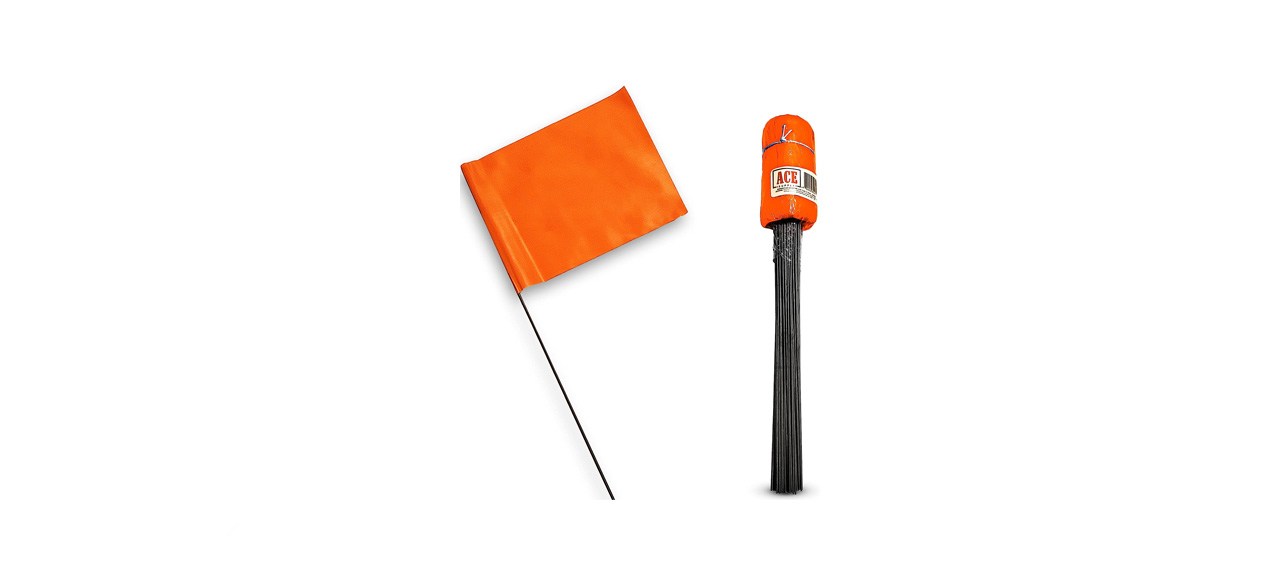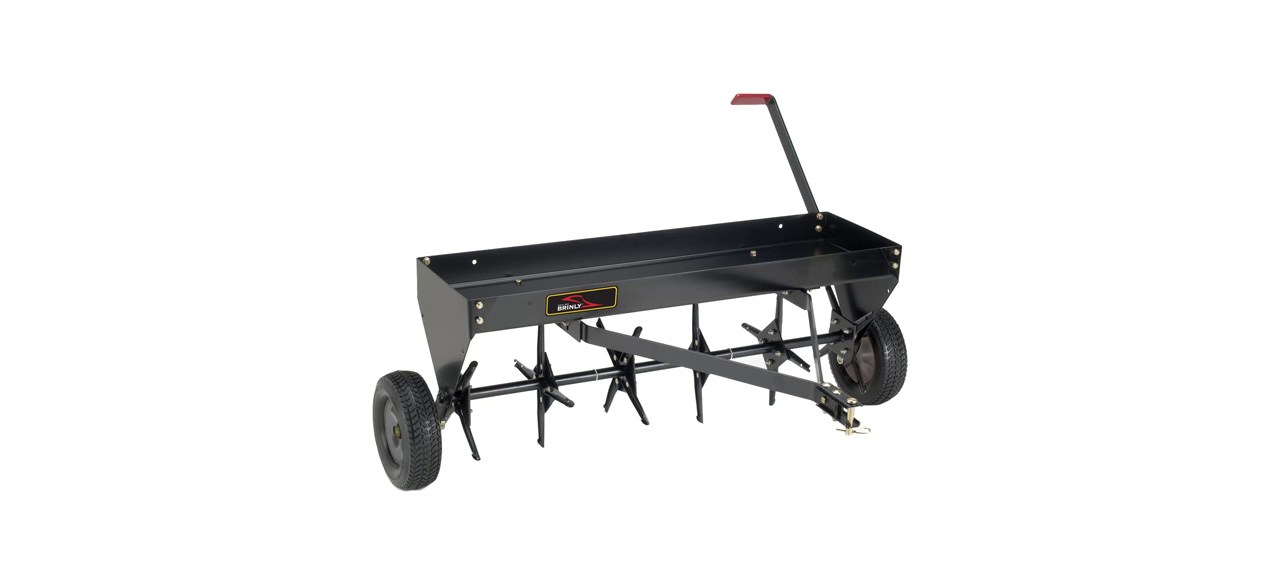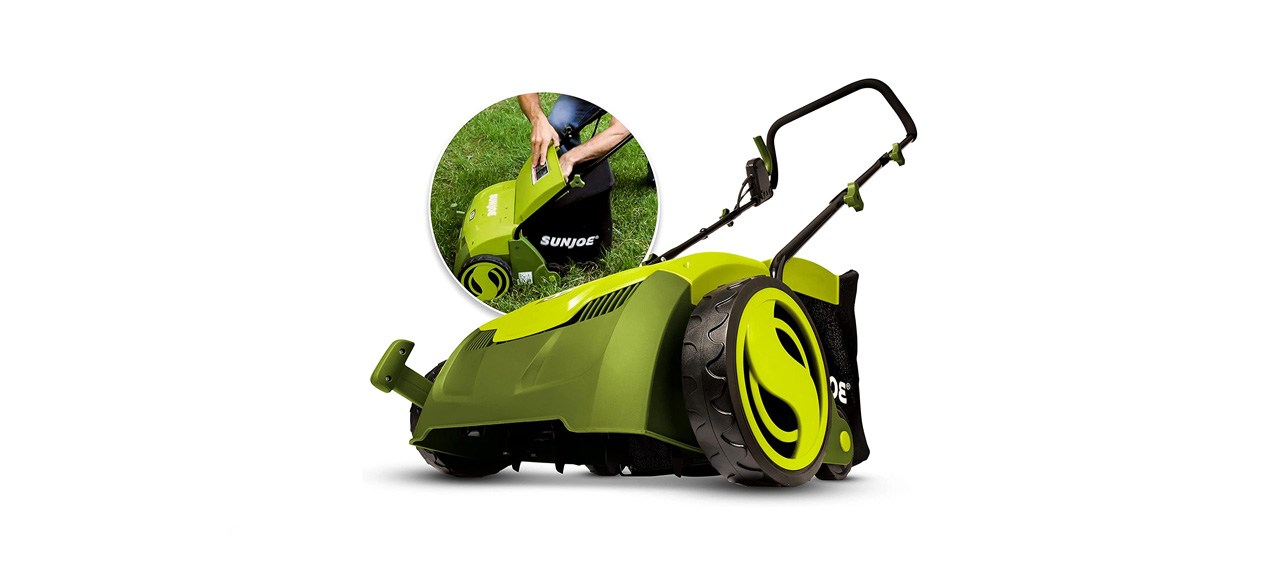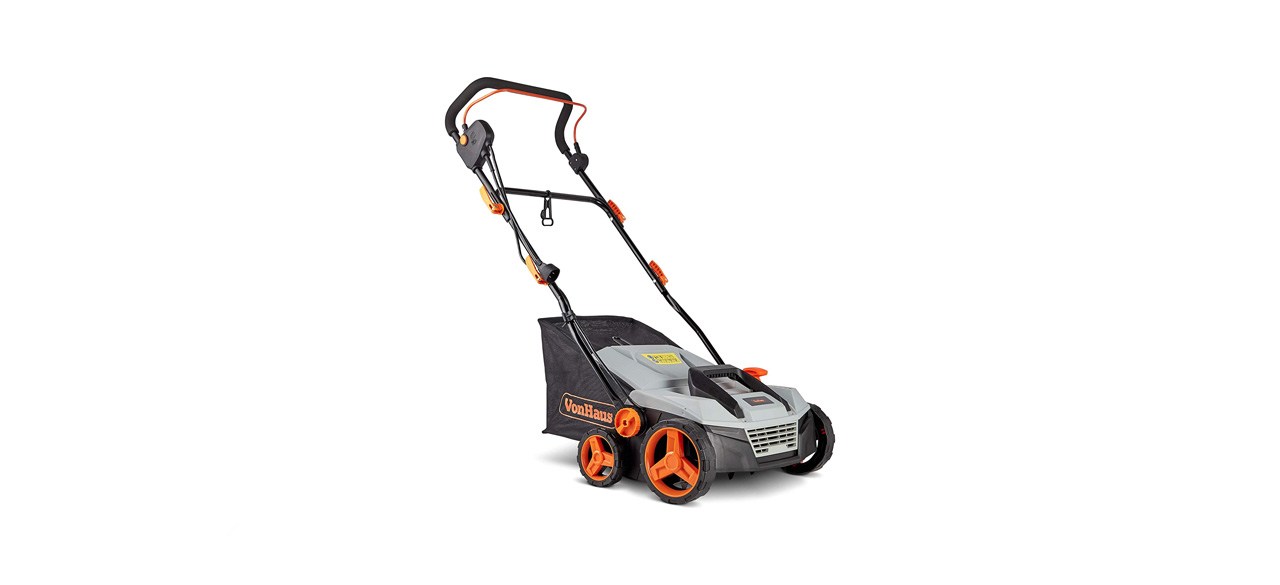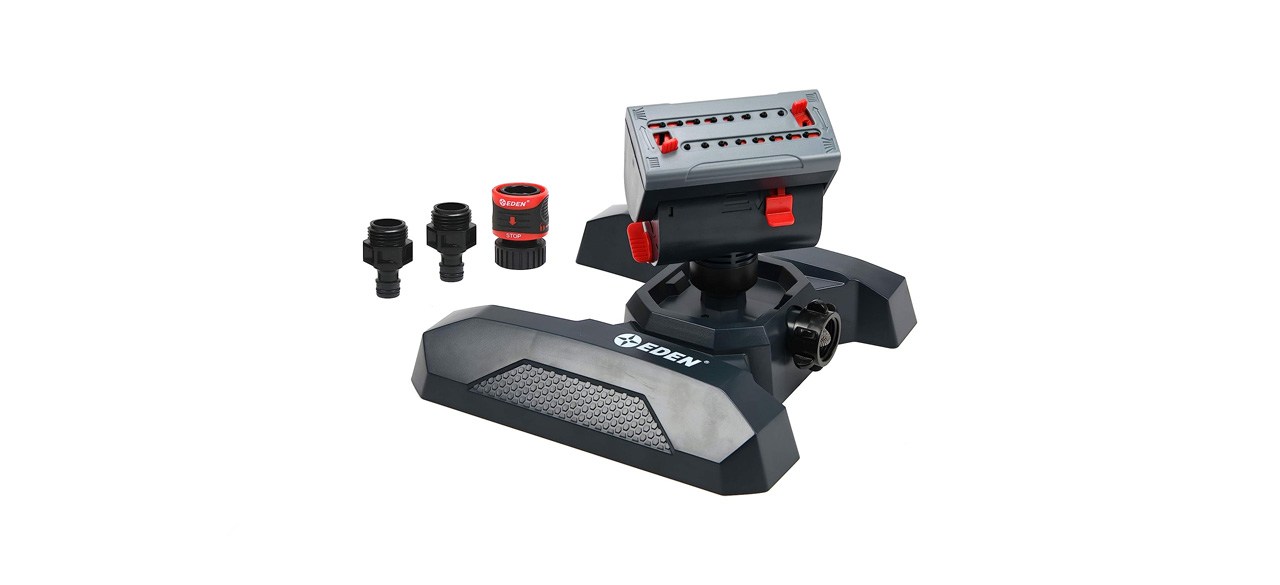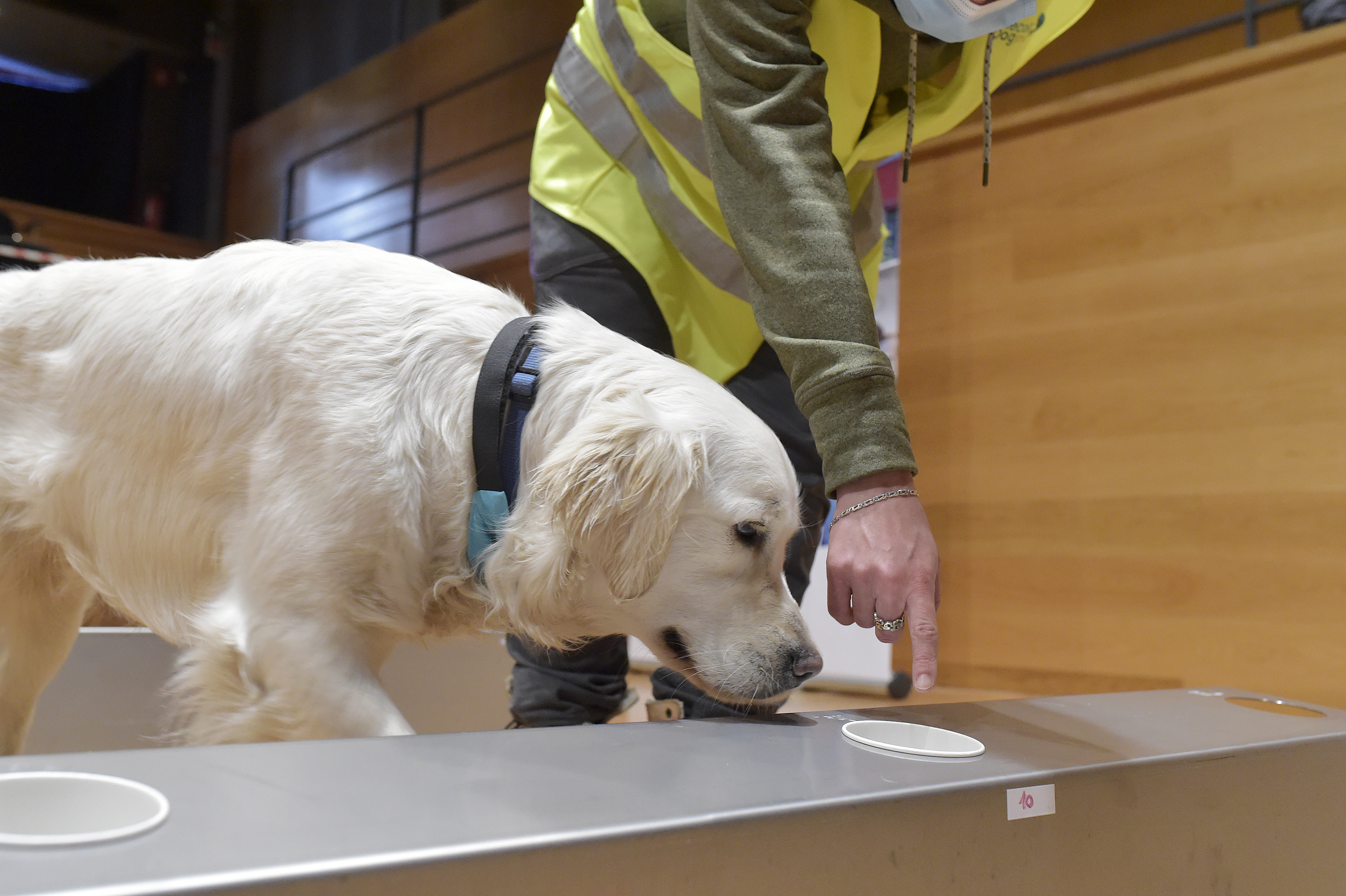Everything you need to aerate your lawn
If you have a lawn, you need to aerate it so it can grow lush and strong. Aerating helps break up compacted soil, allowing air, water and essential nutrients to reach the roots. This, in turn, helps grass grow and prevents brown patches from forming in the yard. If you’ve never aerated your lawn before, there are a few ways you can do this successfully.
Shop this article: Marking Flags, Brinly-Hardy 40-Inch Tow-Behind Plug Aerator and Sun Joe AJ805E 15-Inch 13-Amp Electric Dethatcher and Scarifier
How to aerate your lawn
Dethatch your yard
Thatch is the layer of plant leaves, roots, stems and other debris on top of healthy grass. When it builds up, it can compact the soil, preventing nutrients and air from reaching the root system. Before you can aerate the lawn, you need to remove the thatch. One way to do this is with a thatch rake, which catches the debris and pulls it away from the rest of the yard. You can use a durable garden rake if you don’t have a thatch rake, but it might not be as effective for tough buildup.
Verify soil type
The type of soil you have will dictate how often you need to aerate it. It will also determine how difficult it is to do it. For example, soft soil consisting mostly of sand doesn’t need to be aerated very often since it doesn’t compact as easily. On the other hand, clay-based soil packs down easily and needs more frequent aeration. The more compact the soil is, the more powerful tool you’ll need to aerate the lawn.
If you’re not sure what type of soil you have, you can use a soil identifier.
Water the lawn
After dethatching, make sure to water your entire lawn. You can use a handheld garden hose with a nozzle sprayer to water the yard, or you can use a sprinkler system and leave it running for 15 to 30 minutes.
Mark important areas
Before aerating, mark any areas you want to avoid with small marking flags. This could be anything from outcroppings of small rocks to other plants. Doing this ensures you don’t damage the aerator or anything else during the process.
Select the right aerator
There are three types of aerators.
- Core aerator: These have thin hollow tines that create soil plugs and pull them from the yard. This leaves small holes in the yard, allowing for water, nutrients and oxygen to reach the roots. Most core aerators reach 2 to 4 inches deep. The downside with these machines is that they leave the plugs on the surface of the lawn, so you need to pick them up.
- Slicing aerator: These machines use blades to slice through several layers of thatch, all the way down to the soil. They can easily penetrate a couple of inches and work well for most soil types.
- Spike aerator: Spike aerators push the soil down into the ground to create pockets for shallow roots to breathe. The downside of this method is the soil ultimately ends up compressed. However, these machines work well for first-time aeration and for clay-based soil.
Choose equipment that works with your lawn and soil. It should be able to reach between 2 to 3 inches deep.
How to use the aerator
Start by aerating the entire lawn in one direction. Then, go back over the area in a perpendicular pattern. This method ensures full coverage of your lawn.
Tips on aerating the lawn
- Pick up any remaining plugs. Or, if you live in a moist environment, leave them to break up on their own.
- Encourage growth in areas that need it. If there are dead spots in your yard, sprinkle grass seeds and fertilizer to encourage grass to grow.
- Use a soil testing kit. A soil testing kit indicates the pH level and chemical makeup of your soil, which can tell you which fertilizer to use after aeration.
When to aerate your lawn
If you have a regular lawn maintenance plan, you can aerate once every one to three years. For cool-season grasses, aerate the lawn at the beginning of spring or fall. For warm-season grasses, do it in late spring or at the beginning of summer.
Also, if you see thatch buildup or water puddles starting to form, it could be time to aerate the lawn. When in doubt, take a pointed tool such as a screwdriver and try to poke it through the soil. If it doesn’t penetrate very deeply, or if it requires a lot of force, it might be time to start the process.
What you need to buy to aerate your lawn
Brinly-Hardy 40-Inch Tow-Behind Plug Aerator With Weight Tray And Universal Hitch
This plug aerator removes up to 3 inches of soil with ease. It has 24 heat-treated plugging spoons that can aerate even hard clay. However, you need to connect it to a lawn tractor or ATV.
Sold by Amazon
Sun Joe AJ805E 15-Inch 13-Amp Electric Dethatcher and Scarifier
This corded electric dethatcher is powerful enough to automate your lawn maintenance and keep the grass healthy. It comes with a 13.2-gallon thatch collection bag. It also uses a powerful 13-amp motor and can cover a path up to 15 inches wide at once. The machine is height adjustable, too.
Sold by Amazon
VonHaus Two-in-One Electric Lawn Dethatcher Scarifier and Aerator
This two-in-one aerator and dethatcher can easily remove organic debris from the yard and keep your grass lush. It has five adjustable depths and a collection box to gather debris.
Sold by Amazon
Yard Butler ID-6C Manual Lawn Coring Aerator
This core aerator is environmentally friendly and simple to use. It creates two 3 1/2-inch cores, making it ideal for spot aerating or small yards. It’s constructed from heavy-duty, rust-resistant steel.
Sold by Amazon
Eden Adjustable Four-Way Mini Turbo Oscillating Sprinkler
With 16 nozzles covering over 4,000 square feet, this sprinkler is a great way to prep larger yards before aeration. It has flexible four-way adjustments that provide specific watering.
Sold by Amazon
Want to shop the best products at the best prices? Check out Daily Deals from BestReviews.
Sign up here to receive the BestReviews weekly newsletter for useful advice on new products and noteworthy deals.
Angela Watson writes for BestReviews. BestReviews has helped millions of consumers simplify their purchasing decisions, saving them time and money.
Copyright 2023 BestReviews, a Nexstar company. All rights reserved.

